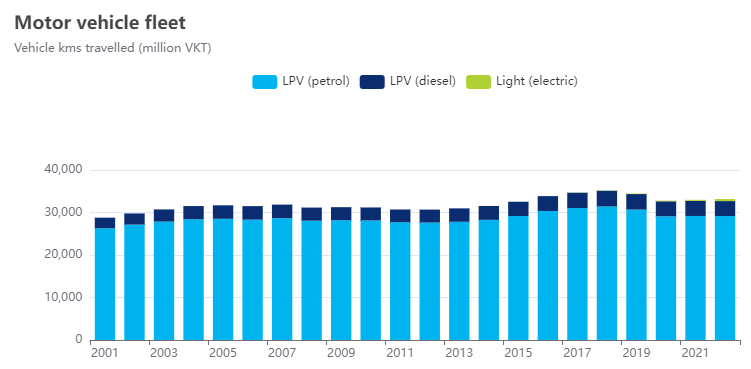
Travel Demand in 2050
Submission from Spokes Canterbury
September 2024
Tēnā koutou katoa
Thank you for the opportunity to comment on the Ministry of Transport consultation on Travel Demand in 2050.
Introduction
Spokes Canterbury (http://www.spokes.org.nz/) is a local cycling advocacy group with approximately 1,200 followers. Spokes is affiliated with the national Cycling Action Network (CAN – https://can.org.nz/). Spokes is dedicated to including cycling as an everyday form of transport in the greater Christchurch and Canterbury areas. Spokes has a long history of advocacy in this space including writing submissions, presenting to councils, and working collaboratively with others in the active transport space. We focus on the need for safe cycling for those aged 8 to 80. Spokes also supports all forms of active transport, public transport, and has an interest in environmental matters.
Proposal
What are the drivers and trends that will most directly influence demand for land-based transport in New Zealand over the next 25 years, and what are the range of feasible options for responding to this demand?
Question 1: Do you agree that ‘travel demand in New Zealand in 2050’ is a worthwhile topic for the Ministry’s LTIB?
Yes
Question 2: Do you agree that a time horizon of 25 years is appropriate?
Yes
Question 3: Do you agree that the scope should be limited to demand for land-based transport?
Partly. For example drones will impact both land and air based transport.
Question 4: Which drivers and trends are likely to have the most direct influence on demand for land-based transport over the next 25 years? What data and information about those drivers and trends should we draw on to create a baseline scenario for 2050?
- Investment drives transport choices. Building safe infrastructure for cycling increases use. Christchurch has seen a 35% increase in cycling from 2018-2022 with the building of the major cycleway network. As each section of a cycleway is completed there is a noticeable jump in cycle journeys. Popular routes into the city now have over 1000 cyclists a day. There is potential for active transport, including cycling, to grow to 20% of transport journeys if the appropriate infrastructure (which is significantly cheaper to build and has a much higher cost benefit than building more roads) is provided.
- Travel demand in 2050 depends on investment over the next decade. Building more roads induces more urban sprawl leading to more demand for private transport on those roads.
- As cities grow housing density will increase, changing patterns of transport away from private ownership of motor vehicles towards active, public and shared transport if it is convenient, safe and efficient.
- Cities around the world are creating liveable spaces by limiting access of cars, lowering speeds, shutting off some roads and putting in congestion charging in favour of walking and public transport. This can be seen in cities like Barcelona, Paris, New York, and London. The seeds of this are beginning to be seen in Auckland and Christchurch which is revitalising our city centres.
- Aotearoa has one of the highest car ownerships in the world due to a lack of investment in public and active transport over decades. Christchurch is the largest city in the developed world that does not have MRT. Providing an efficient MRT for Greater Christchurch in the next decade will change travel patterns significantly.
- E-bikes increase the range of people able to physically cycle and the range of journeys they are likely to do. Some of the best like Sinch are being built in New Zealand
- Christchurch and Auckland are seeing an increasing number of cargo bikes used for a wide range of purposes.
- As our cities become more dense fewer people will choose to own a car.
- Train travel will increase in New Zealand. There should be more opportunity take bikes on buses and trains for last mile connections and for recreation.
- VKT peaked for private vehicles in 2018 and is currently flat despite population increases. Internationally the trend is a decline in VKT in developed nations.

Fig 1 Private Motor vehicle VKT 2001-2022 in New Zealand from Ministry of Transport
Question 5: Given uncertainty around the pace, scale and type of technological advancement, how should our analysis of future scenarios factor in technology?
- It is really only possible to forecast technology for the next decade given that uptake normally resembles an S curve once the tipping point has been reached. Create three scenarios, fast, medium and slow uptake. This should include fast, medium and slow uptake of cycling and active transport as well.
Question 6: If we model alternative scenarios for 2050, which key assumptions do you think we should alter from a baseline scenario? (For example, assumptions about overall population growth, assumptions about geographic population distribution etc.)
- Travel will be increasingly electric, autonomous and multi-modal. All have the potential to make travel cheaper, healthier and more productive, however the transition will be disruptive.
- The baseline scenarios should include more active transport, including cycling; less car ownership; and greater use of public transport.
- Modelling should include all costs including health, well-being, CO2, pollutants, climate change impacts, household costs etc. When looked at holistically encouraging active transport and less private ownership of motor vehicles has the highest economic and societal benefits for households and the country.
I am happy to discuss or clarify any issues that arise from this submission. Thank you for the opportunity to contribute.
Anne Scott
Submissions Co-ordinator
Spokes Canterbury

